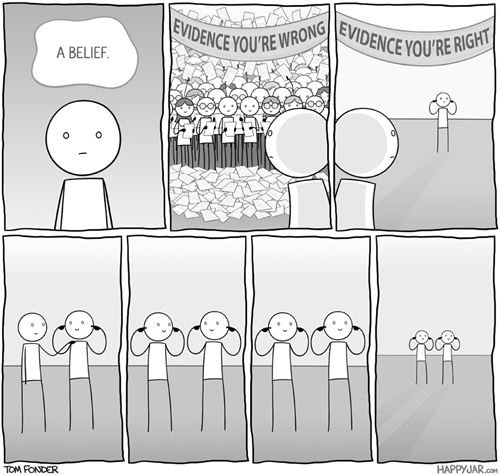Study: M’sians Themselves Are The Source Of Fake News

“Fake news” has been a growing problem in recent years. Misinformation spreads quickly on social media, especially if it’s controversial.
And while the elderly are much more susceptible to believing in and spreading fake news, almost everyone has shared unverified information without fact checking beforehand.
But you’d like to think that you know better. After all, you’re not the one mass-forwarding Whatsapp messages into your family group chat.
You get your news from reputable sources… right?
The real problem is bias.
The thing with humans is that we are fundamentally really biased.
A study has shown that people remember facts wrongly to fit in with their biased worldview.
When presented with facts that were consistent to public opinion, the participants accepted it and remembered the numerical correlation.
When presented with facts that went against people’s beliefs, participants would remember the numbers correctly, but change the numerical correlation to fit their worldview.

(Picture credit: Cheezburger)
The example used in the study was participants reading a news piece about the number of Mexican immigrants in the US declining from 12.8 million in 2007 to 11.7 million in 2014.
This fact (the decline of immigrants) is not consistent with the public assumption that there are more Mexican immigrants in the US than ever.
They found that people will remember the numbers correctly, but flip the numbers to show an increase instead the factual decrease so that it aligns with their bias of increasing immigrant numbers.
They weren’t guessing – they got the numbers right. But their biases were leading them to misremember the direction they were going.
Jason Coronel, Assistant Professor of Communication at The Ohio State University
These memory distortions caused by these biases are magnified when spread via word-of-mouth as well.
Participants were instructed to pass along the information to other people in a chain, similar to the “telephone chain” game.
At the very end, researchers found that the average participant claimed that Mexican immigrants increased by 4.6 million when in reality they decreased by 1.1 million!
The results suggest that the outside world isn’t the only source of “fake news” we should be critical of.
This is particularly true for viral stories that spread in Malaysia which often involves reinforcing racial stereotypes, political prejudice, or gendered biases.
We need to realize that internal sources of misinformation can possibly be as significant as or more significant than external sources.
We live with our biases all day, but we only come into contact with false information occasionally.
Shannon Poulsen, Ohio State University.
It’s everyone’s responsibility to always fact-check hearsay and second-hand information.
But most importantly, keep your mind open to factual information that may not be what you want to hear.
Can’t believe it? Share your favourite piece of fake news with us on our Facebook, Twitter, or Instagram.
Anne is an advocate of sustainable living and the circular economy, and has managed to mum-nag the team into using reusable containers to tapau food. She is also a proud parent of 4 cats and 1 rabbit.





